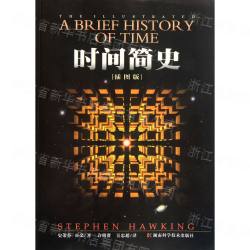-
内容大纲
英语学习者需要了解哪些词汇?
英语词汇到底该怎么教?使用翻译法?语境猜测法?查阅词典法?
课外阅读对于词汇学习有什么作用?
学习者的词汇知识如何衡量评估?
……
本书作者保罗·内申教授和顾永琦教授依据国内外词汇学习理论,对英语词汇教学中的一些关键问题进行阐释,不仅厘清了词汇教学中的常见错误认识,还提供了大量课堂活动案例,是专为中小学英语教师及立志从教的英语专业高年级学生打造的一本实践性词汇教学用书。 -
作者介绍
-
目录
CHAPTER ONE VOCABULARY LEVELS AND KNOWING A WORD
Introduction
The five levels of vocabulary
Vocabulary as a barrier to understanding
Knowing and learning a word
*Summary
*What should a teacher do after reading this chapter?
*References
*Further reading
CHAPTER TWO HOW VOCABULARY IS LEARNED
Introduction
Quantity and quality of learning
Quantity of meetings (repetition)
How can we increase repetition in a course?
Quality of meetings
How can we increase the quality of meetings?
Repetition and quality of processing
Vocabulary learning and the four strands
*Summary
*What should a teacher do after reading this chapter?
*References
*Further reading
CHAPTER THREE PLANNING FOR VOCABULARY IN LANGUAGE PROGRAMMES
What vocabulary should a teacher focus on?
The four strands
Planning for high frequency words
Planning for mid- and low frequency words
Planning a vocabulary programme and putting it into action
*Summary
*What should a teacher do after reading this chapter?
*References
*Further reading
CHAPTER FOUR VOCABULARY AND THE RECEPTIVE SKILLS OF LISTENING AND READING
Vocabulary and listening
Vocabulary and reading
Learning vocabulary through listening and reading
Running an extensive reading programme
Useful deliberate learning
Fluency development
*Summary
*What should a teacher do after reading this chapter?
*References
*Further reading
CHAPTER FIVE VOCABULARY AND THE PRODUCTIVE SKILLS OF SPEAKING AND WRITING
Vocabulary and speaking and writing
Learning vocabulary through speaking and writing
Coping with difficult speaking and writing tasks
Useful deliberate learning
Fluency development
Developing the writing skill
*Summary
*What should a teacher do after reading this chapter?
*References
*Further reading
CHAPTER SIX LEARNER STRATEGIES IN VOCABULARY LEARNING
Introduction
Learner strategies and vocabulary development
The vocabulary learning task
Strategies for different stages of vocabulary learning
Learner self-management in vocabulary learning
Developing learner autonomy
*Summary
*What should a teacher do after reading this chapter?
*References
*Further reading
CHAPTER SEVEN MEASURING VOCABULARY KNOWLEDGE
Vocabulary size
Measuring vocabulary size
Measuring special purposes vocabulary
Measuring vocabulary in use in writing
Small scale tests of vocabulary
The validity of test items
*Summary
*What should a teacher do after reading this chapter?
*References
*Further reading
CHAPTER EIGHT INVESTIGATING VOCABULARY
Introduction
What is a word?
Understanding the statistical nature of vocabulary
Analysing texts to see their vocabulary difficulty
Gathering information on individual words
*Summary
*what should a teacher do after reading this chapter?
*References
*Further reading
CHAPTER NINE COMMON QUESTIONS ABOUT VOCABULARY
Introduction
1 Should translation be used to teach and learn vocabulary?
2 Should words be learned in context?
3 What should a teacher do about collocations?
4 Do the relationships between words in a content-based unit of work help learning?
5 How big a vocabulary do you need?
6 How should words be taught?
7 Is an English through the curriculum course a good environment for learning vocabulary?
8 Should teachers give learners lists of words to learn?
9 Should learners use monolingual or bilingual dictionaries?
10 What are the most effective improvements that a teacher could make to a course in English as a foreign language?
Appendices
APPENDIX 1: A GUIDE TO THE VOCABULARY LEVELS TESTS
APPENDIX 2: GLOSSARY
APPENDIX 3: LIST OF WEBSITES MENTIONED IN THE BOOK
同类热销排行榜
- 目送/人生三书
-
 21世纪的《背影》 + 感人至深的“生死笔记”+ 龙应台亲手摄影 + 跨三代共读的人生之书!
华人世界率性犀利的一枝笔,龙应台独家...
21世纪的《背影》 + 感人至深的“生死笔记”+ 龙应台亲手摄影 + 跨三代共读的人生之书!
华人世界率性犀利的一枝笔,龙应台独家...
- 顾城的诗(金版)(精)/蓝星诗库
- 人类群星闪耀时(插图本)/译林名著精选
- 牛津高阶英汉双解词典(附光盘第8版)(精)
- 文化苦旅(新版)
- 摆渡人
- 解忧杂货店(精)
- 骆驼祥子
- 曾国藩(又笨又慢平天下)
- 查令十字街84号(珍藏版)(精)
推荐书目
-

孩子你慢慢来/人生三书 华人世界率性犀利的一枝笔,龙应台独家授权《孩子你慢慢来》20周年经典新版。她的《...
-

时间简史(插图版) 相对论、黑洞、弯曲空间……这些词给我们的感觉是艰深、晦涩、难以理解而且与我们的...
-

本质(精) 改革开放40年,恰如一部四部曲的年代大戏。技术突变、产品迭代、产业升级、资本对接...

 [
[
